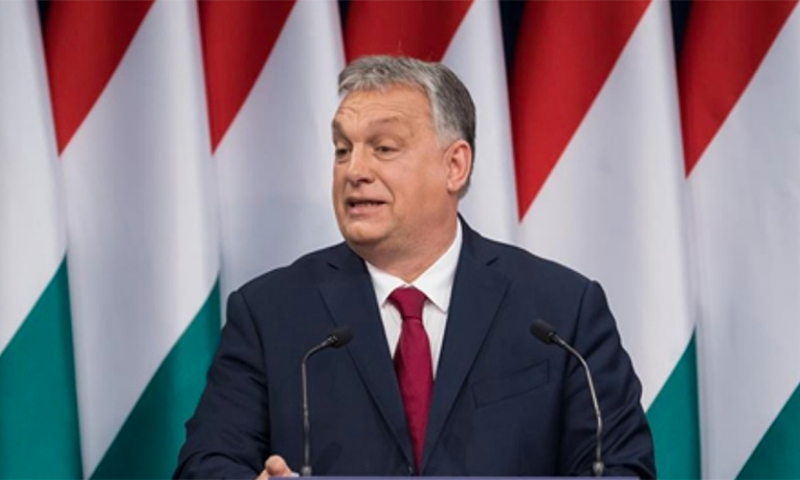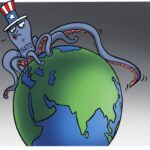On Wednesday, Hungary’s Prime Minister Viktor Orban arrived in Washington, the fourth stop of his “peace mission.” Since July 1, when Hungary officially took over the presidency of the Council of the European Union, Orban has visited Ukraine, Russia, and China consecutively. The “whirlwind tour of diplomacy” by Hungary has faced strong dissatisfaction from some EU officials. Hungary’s actions have been even labeled as “undermining EU unity.”
Despite those unwarranted accusations, Budapest’s diplomatic efforts indicate that some countries or individuals within the EU still hope to push EU strategic decision-making toward rational pragmatism, avoiding being led astray by “political correctness.” In an interview with German media, Orban called on the EU continent to “pursue an autonomous policy.” He stated, “Europe is just copying the American position instead of having its own strategic approach,” as an escalation of Russia-Ukraine conflict would be bad for Europe.
With the outbreak of the Russia-Ukraine conflict, US influence on European diplomacy is increasing. Some mainstream political elites in the EU are increasingly regarding the “transatlantic relationship” as the cornerstone of EU foreign and security strategy, overly relying on and following the US. Even though there is a recognition that fundamentally the US’ policy is “America First,” a considerable number of Europeans still insist on following the US, even though it is clearly detrimental to Europe’s interests.
The trend of the EU being integrated into the US strategic track in areas such as economy, energy, and defense is becoming obvious, while the EU’s own economic and industrial interests, as well as people’s well-being are severely impacted. Moreover, the prospects for development and transformation are severely hindered, making it increasingly difficult to achieve “EU strategic autonomy.”
In this context, Hungary’s diplomatic efforts meet the need for Europe to strengthen its strategic autonomy. Cui Hongjian, a professor with the Academy of Regional and Global Governance at Beijing Foreign Studies University, told the Global Times that some of Orban’s policy proposals, including using “Make Europe Great Again” as a slogan during Hungary’s term as the rotating EU presidency, and claiming to “take Europe closer to peace,” are in line with the demands of building the EU’s strategic autonomy.
Hungary has always implemented its strategic concept of “opening to the East” in diplomacy, seeking opportunities and cooperation in the East in order to inject strong and sustainable development momentum into its economy and people’s livelihoods. Against the backdrop of the current turbulent international situation, this clearly aligns with the mainstream expectation of the international community for opposing camp confrontation and returning to cooperation and openness.
To be realistic, during its six-month rotating presidency of the EU Council, Hungary’s impact on the direction of the Russia-Ukraine conflict and the EU’s internal and external policies may be limited. Nevertheless, Hungary is still trying its best and taking a series of diplomatic actions to promote more reflection within the EU on how to break away from existing policy inertia, accelerate the alleviation of the bloc’s difficulties, and reserve space for possible policy adjustments and maneuvers in the future of the EU.
Taking the example of its policy toward Russia, Hungary is one of the few channels in the EU that directly communicates with Russian leadership. Before the escalation of the Ukraine crisis, Germany and France were more prominent in this regard, with Berlin and Paris both enhancing their initiative and influence on European security issues through high-level diplomacy with Russia.
Stepping back, as the US presidential election approaches, the EU is increasingly concerned about the impact of the US’ election results on transatlantic relations. Some have even called for strategic preparations for a possible fully reversed shift in US policy toward Russia in the future. From this perspective, Hungary’s current series of actions appear to be an effective hedge against external risks.
Global Times




